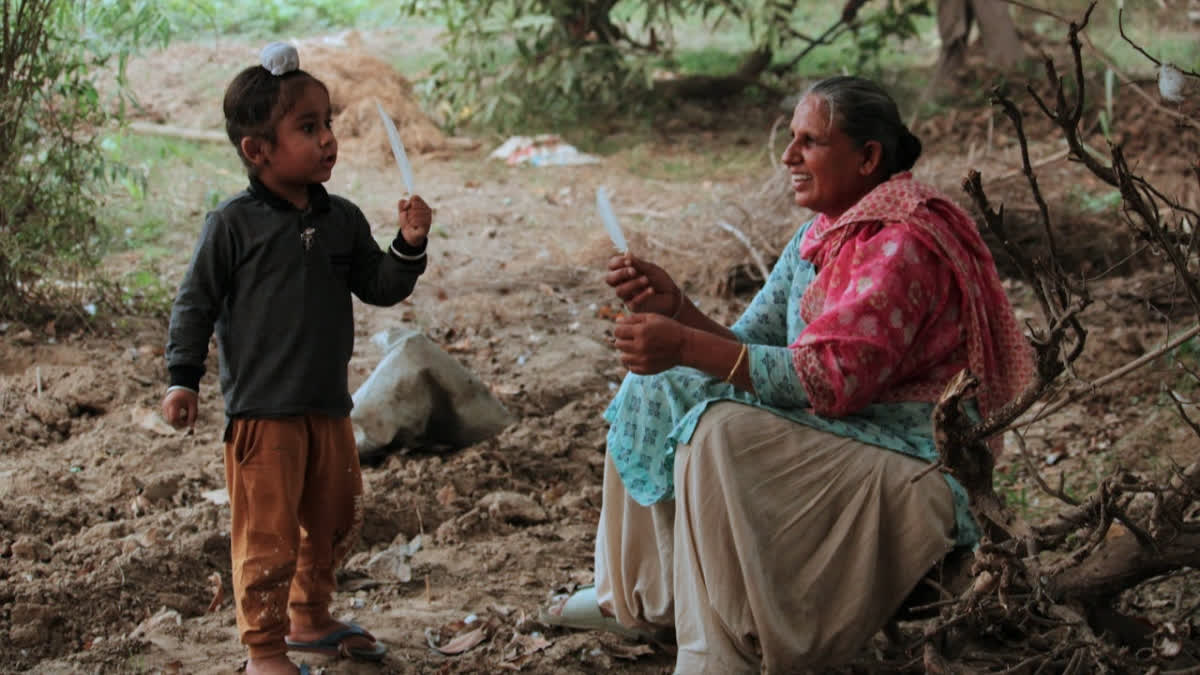October is World Menopause Month, which doesn’t exactly sound like reason to celebrate. However, what if menopause was less about the end of things and more about the start of your superheroine phase? In fact, science has a theory for why women tend to live long after they stop having babies, and it’s not because they’re supposed to join a book club or take up knitting. It's called the 'Grandmother Hypothesis', and it’s all about how grandmas might be the secret to human survival.
Think of the Grandmother Hypothesis as an evolutionary plot twist. Most creatures in the wild don’t live much longer than their baby-making years, but human women? They have been sticking around well past the reproductive age, outliving their husbands at times. They are helping to raise grandkids and making sure nobody starves while the younger generation tries to figure out how to adult.
Natural Leaders
Why do women get to hit pause on making babies but not on living? According to the Grandmother Hypothesis, post-menopausal women aren’t just sitting around binge-watching TV. They’re busy helping their kids raise their kids. Back in the day, this wasn’t about buying rompers. It was about making sure everyone had enough food to survive. And as a bonus, helping your grandkids thrive means more of your genes get passed on.
Take the Hadza people of Tanzania, for example. Anthropologist Kristen Hawkes spent years watching how grandmothers in this hunter-gatherer society contribute to the survival of their grandkids by foraging. The grandmas pitch in so the younger women can focus on having more kids without accidentally losing one in the forest. The result: The grandkids survive, and the family tree flourishes. It’s a win-win.
The hypothesis also sheds light on why older women make excellent leaders, both in their communities and at work. Post-menopausal women are free from the pressures of raising young children, bring decades of life experience, emotional intelligence, and strategic thinking to the table.
Additionally, the nurturing and empathetic qualities that grandmothers display with their families can translate into powerful leadership traits in the workplace. Studies have shown that emotional intelligence is key to effective leadership. Older women, having honed their skills in patience, conflict resolution, and long-term planning, bring a more balanced, thoughtful approach to decision-making. They are also more likely to mentor younger colleagues and create inclusive environments, understanding that true leadership isn't just about personal success but about lifting others as well.
The Science Behind It
Researchers from Exeter University studied menopause in five species of whales. Turns out, it’s not just human grandmoms who stop reproducing and start dishing out unsolicited advice: orcas and narwhals do it too. The study, published in the journal Nature suggests that menopause isn’t just about putting away the baby-making equipment. Species like orcas that experience menopause live way longer than those that don’t by 40 years longer on average. So, while the older whales are done with the whole reproduction game, they have loads of time to babysit, share snacks, and teach the young ones where to find the best fish.
Researchers have even spotted grandma Orcas sharing food and keeping the peace. Senior researcher Darren Croft noted that male whales with post-reproductive moms have fewer battle scars. Basically, whale moms are out there breaking up fights and making sure no one’s skin gets scratched. They're like the ocean's version of conflict resolution experts.
Why Do Women Live Longer?
Women live longer because evolution realised that, once they’re done with having babies, they’re too valuable to just leave the planet. Having spent years navigating family dynamics, organising households, and providing care, older women are expert problem solvers who excel at managing complex situations and interpersonal relationships. In many ways, they’ve been practicing leadership all along, just not always in the corporate boardroom.
Menopause is not an ending—it’s the start of your career as a behind-the-scenes MVP.
Read more:



